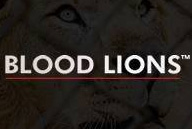STATEMENTS FROM OTHER ORGANISATIONS
Click on a logo to view.
Want to display your organisation’s statement? Click here.




Minister Barbara Creecy, released the report of the High-Level Panel that was appointed to review policies, regulatory measures, practices and policy positions that are related to hunting, trade, captive keeping, management and handling of elephant, lion, leopard and rhinoceros.
“The report contains a clear vision, with 18 goals and 60 recommendations. I must say it is remarkable that a group of people with different views on the management of these iconic species was able to achieve consensus on all recommendations, except those recommendations that deal with captive lion and rhino breeding.”
ISSUES IDENTIFIED
- Captive Holding and breeding of lion and rhino
- Hunting of captive-bred lions
- Trade in captive lion parts and derivatives
- Unsustainable practices on hunting of wild leopard
- Feasibility of legal international trade in rhino horn and elephant ivory for commercial purposes
- Ineffective and inefficient legislation and implementation resulting from duplicated and conflicting legal requirements
- Ineffective manage of State Protected Areas
- Non optimisations of the full potential of a vibrant Biodiversity Economy
- Inadequate access and benefit to sharing communities
- Untransformed Wildlife Sector
PROPOSED SOLUTIONS
-
- Species Management Policy Interventions
- To put an immediate halt to the domestication of lion and the commercial exploitation of captive lions, and establish a process to close captive lion facilities
- To reverse the domestication and intensification of management of rhino
- To enhance conservation and sustainable use of leopard
*Refer definition: “Intensively manage rhinos” means Rhinos kept in a small area, in or out of the historic range of the taxon where deliberate husbandry, food supplementation and intensive management are routinely undertaken
- Trade Related Policy Interventions
- To adopt a position that South Africa will not submit an ivory trade proposal to the Convention on International Trade in Endangered Species of wild Fauna and Flora (CITES) as long as current specified circumstances prevail.
- To adopt a position that South Africa will not propose or support amendments to the CITES appendices relating to South Africa rhino specimens.
- To prevent the export of live specimens of the five iconic species outside of their range states, or into captivity in other countries.
- To explore potential benefit of disposal of elephant ivory and rhino horn stockpiles and to implement and put in place the Commission of Inquiry recommendations of rhino horn trade.
- Priority Conservation Policy Interventions
- The development of an overarching national policy on Biodiversity and sustainable use.
- To enhance the conservation of the iconic species, through increased wildness, naturalness, and wellbeing of fauna.
- To adopt a One Welfare approach to wildlife wellbeing.
- To re-position South Africa as a destination of choice for legal, humane, regulated and responsible hunting of the five iconic species.
- To reconceptualise the role of state and other protected areas for conservation scaling and as a socio-economic catalyst.
- Conservation Transformation Interventions
- To restore a transformative Africa approach to conservation and sustainable use, consistent with Ubuntu.
- To enhance sustainable use of iconic species, especially leveraging responsible ecotourism and its benefit flows.
- To promote and enhance human-wildlife co-existence, while empowering and capacitating people living with or near wildlife.
- Conservation Capacity Policy Interventions
- Targeted capacity development for key component of the wildlife sector.
- To improve the evidence-base for best practice within the wildlife sector.
- Species Management Policy Interventions
NOTICE
 Loading...
Loading...
EXECUTIVE SUMMARY
 Loading...
Loading...
DOWNLOAD DOCUMENTS
LIONS
The Panel identified that the captive lion industry poses risks to the sustainability of wild lion conservation resulting from the negative impact on ecotourism which funds lion conservation and conservation more broadly, the negative impact on the authentic wild hunting industry, and the risk that trade in lion parts poses to stimulating poaching and the illegal trade.
The panel recommends that South Africa does not captive breed lions, keep lions in captivity, or use captive lions or their derivatives commercially.
It is important to stress that the recommendations are not against the hunting industry. Preventing the hunting of captive lions is in the interests of the authentic wild hunting industry, and will boost the hunting economy and our international reputation, and the jobs that this creates.
- Mail and Guardian – Wildlife farming vs Creecy’s panel
- Carte Blanche – Interview with HLP Chairlady, Ms Pam Yako (not for sensitive viewers)
- South African Hunters Association – Unethical hunting practices or not?
RHINO
- Mail and Guardian – Rhino owners damn Creecy’s report
- Mail and Guardian – Wildlife owners may target state
